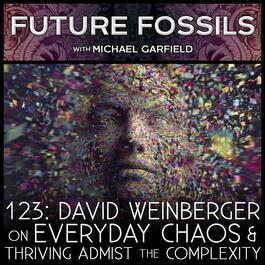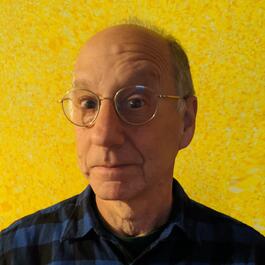
123 - David Weinberger on Everyday Chaos & Thriving Amidst the Complexity
This week we’re joined by David Weinberger, Senior Researcher at the Harvard Berkman Klein Center for Internet and Technology exploring the effects of technology on how we think. David’s led a fascinating and nonlinear life, studying Heiddeger as a young philosopher, working in marketing for high technology, working as a journalist, and authoring four books on technology, creativity, and knowledge. His new book, Everyday Chaos: Technology, Complexity, and How We're Thriving in a New World of Possibility, explores what changes for us in the age of machine learning. I have to admit, I was worried this was going to be just another technocratic puff piece when I started. Certainly it’s a Harvard Business Review Press volume, speaking largely to a business audience; but this is a book that doesn’t flinch at the weirdness of a world in which we know things we don’t know how we know. David’s argument is for a creative embrace of the complexity and mystery that has always surrounded us – that we are in fact made of – and that is becoming much more obvious in light of superhuman but opaque machine intelligences that rehab us from the delusions of our modern pretense that the world is knowable, transparent, and controllable. But unlike the doomsayers of the AI conversation, David has an enviable peace about the fact that we never actually had a lock on what is really going on – and argues eloquently for a fresh encounter with a world of wonder, possibility, and the unknown. David at Harvard: https://cyber.harvard.edu/people/dweinberger David on Medium (“Machine Learning Might Render The Human Quest for Knowledge Pointless”): https://onezero.medium.com/machine-learning-might-render-the-human-quest-for-knowledge-pointless-5425f8b00a45 With open APIs, open access journals, game modding, and other empowering information technologies, we are purposefully making the world less predictable. Laws are not necessarily the most accurate way of describing reality. The death knell for the theory of everything - letting go of unifying universal frameworks. “It’s not really a three-body problem. It’s an every-body problem, because everything with gravity effects everything else.” “Everything - EVERYTHING in our lives we basically don’t know, and can’t predict. But the picture of our lives has been, until recently, ‘It’s simple and law-like.’ The chaos, this is our lives. The laws, they are real, they are helpful, but they don’t govern as much as we like to think.” “We think out in the world with tools. There’s no shame in this, but it does mean we’re not locked in our own heads. And now we have new tools.” “…it depends on what you count as an explanation.” “We need to leave room for the accidental, because that is the stuff of our lives.” “I don’t know what a transparent algorithm is.” Are we willing to trade a thousand auto deaths a year for the explicability of autonomous vehicle safety algorithms? Or fuel efficiency? “An explanation is a tool. It’s not a state of the world.” • Relatedly, we just read Liu Cixin’s The Three Body Problem in the Future Fossils Book Club: https://www.patreon.com/posts/book-club-3-body-29353389?cid=26063131 • Theme Music: “God Detector” by Evan “Skytree” Snyder (feat. Michael Garfield). • Additional Music: “Single & Feeling” by Michael Garfield. Get bonus content on Patreon Support this show http://supporter.acast.com/futurefossils. Hosted on Acast. See acast.com/privacy for more information. This is a public episode. If you'd like to discuss this with other subscribers or get access to bonus episodes, visit michaelgarfield.substack.com/subscribe
From "Humans On The Loop"




Comments
Add comment Feedback